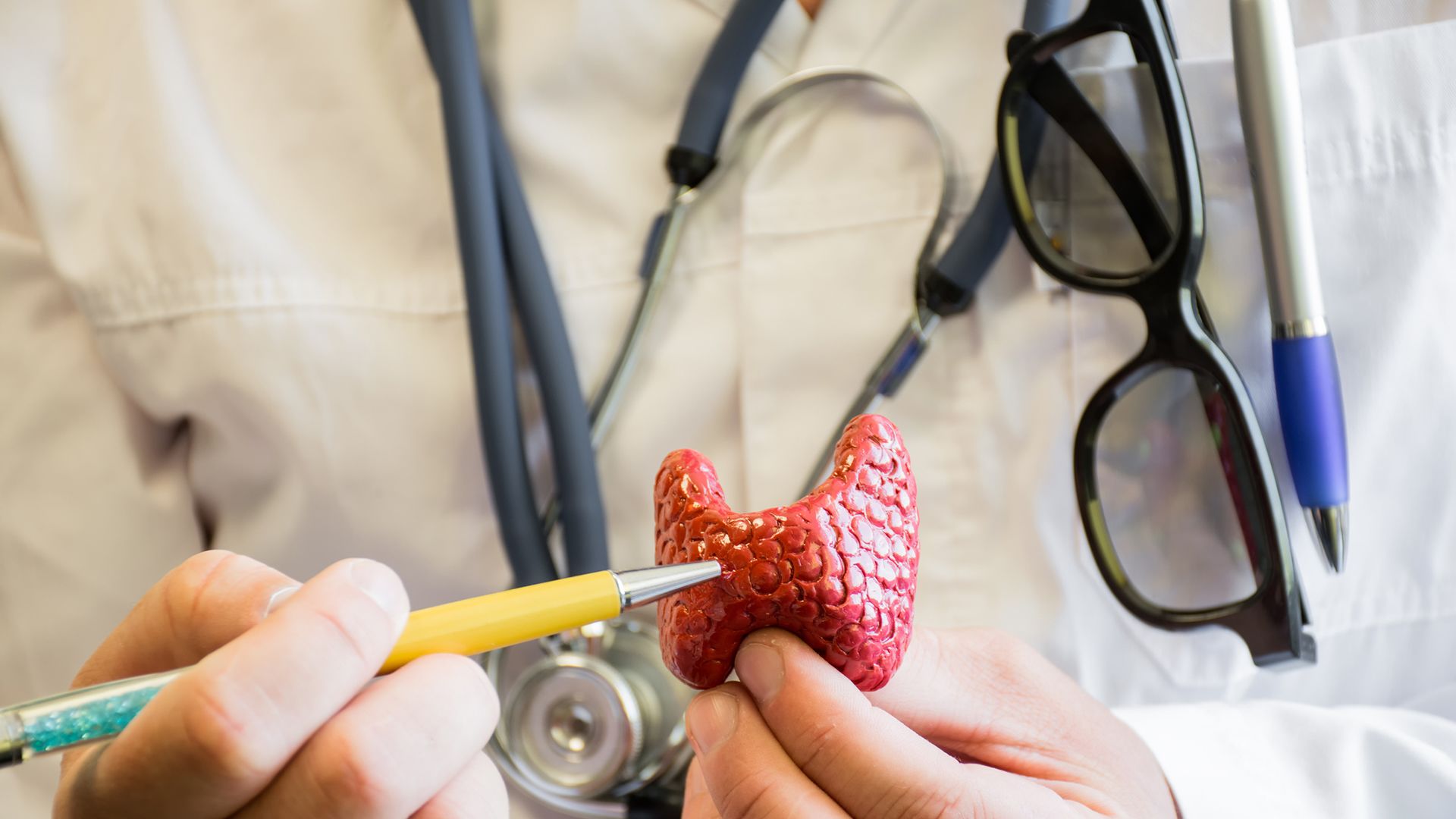Updated on May 28, 2024
Graves’ disease is an autoimmune condition where the body’s immune system attacks the thyroid gland, a hormone-producing gland in the front of the neck. This can cause hyperthyroidism, where the thyroid gland produces too much thyroid hormone. Thyroid hormone is an important chemical that the body requires to regulate many functions, including metabolism, mood, cognition, and fertility.
Symptoms of Graves’ disease
When the body produces too much thyroid hormone, problems occur. In the case of Graves’ disease, these problems can include:
- Heart palpitations, irregular heartrate
- Goiter (enlarged thyroid gland)
- Increased appetite
- Unintended weight loss (even when eating more)
- Muscle weakness, feeling out of breath during activity
- Fatigue, hand tremors
- Mood changes, such as irritability or nervousness
- Problems concentrating
- Poor heat tolerance or excessive sweating
- Frequent bowel movements
- Irregular menstruation
- Hair loss and nail changes
Can Graves’ disease be managed with diet?
Graves’ disease cannot be managed with diet alone, but diet is an important component of managing Graves’ disease. People with Graves’ disease should discuss nutrition with their healthcare providers:
- Because of the way Graves’ disease can affect the bones, muscles, and immune system, it’s important that a diet contain adequate amounts of protein, calcium, vitamin D, healthy fats, and anti-inflammatory foods.
- Graves’ disease can cause changes in bodyweight. Unintended weight loss is common among people who have Graves’ disease. Weight gain can also occur, especially once a person with Graves’ disease begins treatment.
- Ask your healthcare provider about consuming caffeine, and how much you should consume. Caffeine may exacerbate certain symptoms.
- Eating foods that contain too much iodine can be harmful to someone with Graves’ disease. Talk to your healthcare provider about foods to avoid.
Anyone living with Graves’ disease should discuss diet and nutrition with a healthcare provider, who will always be your best source of information. Talk to your healthcare providers about the foods you eat, any foods you should avoid or limit, and any medications you take, including over-the-counter medications, vitamins, and supplements.
If you have concerns about nutrition, you may also consider working with a registered dietitian, a healthcare provider who can assess your nutritional needs and create a personalized eating plan.
How is Graves’ disease treated?
Treatment for Grave’s disease will depend on a person’s symptoms and the severity of the disease. It can include antithyroid medications, radioiodine therapy, or surgery to remove all or part of the thyroid. Beta blockers (medications that lower blood pressure) can be used to relieve abnormal heart rate, tremors, and nervousness.
A treatment plan should also focus on other conditions and complications that are caused by having Graves’ disease, such as thyroid eye disease (TED) and a skin condition called Graves’ dermopathy.
Because these conditions affect different people in different ways, individualized care is important—you want a treatment plan that addresses your diagnoses, your symptoms, and your needs.






